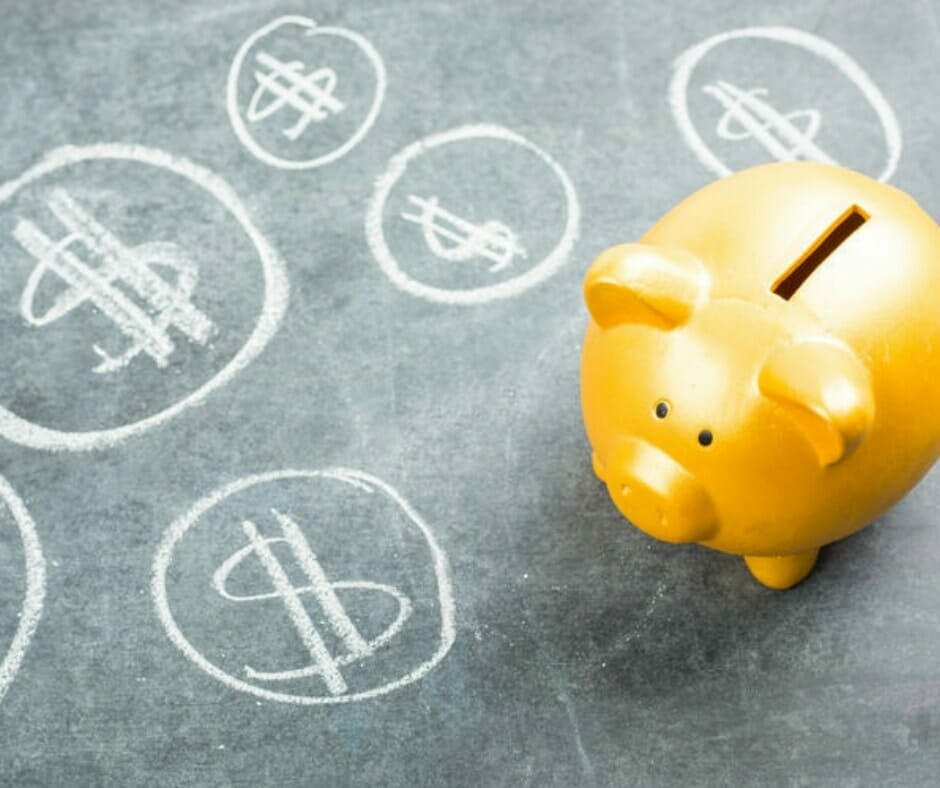One of the first things you need to when it comes to controlling your finances is to save $1,000 in your emergency fund. This sound like a good idea. But, if you struggle to make ends meet, this idea might be much easier said than done. If you can’t afford to pay your bills, how can you be expected to save $1,000?

The truth is, your emergency fund is even more important if you struggle to pay your bills. How will you pay for an unexpected expense? In many cases, you will have to either rob Peter to pay Paul or just rack up more credit card debt. That doesn’t help you.
Your savings is just as important as your budget. Here are some ways you can quickly build an emergency fund and get your balance to at least $1,000!
IDEAS TO BUILD AN EMERGENCY FUND
Sell things you don’t need
This idea gives you the added benefit of being able to declutter your home. Go through closets, the attic, basement and your garage to find the things you do not need. Either host a garage sale or sell them on a local website (such as Let Go or Craigslist).
My husband and I built our emergency fund in this way. We had items in our basement that we did not need, but saved “just in case.” We weren’t using them at the time, so they were do nothing for us.
After a massive basement clean out, we sold furniture and other items and were able to earn more than $400! That put us much closer to reaching our goal of $1,000 saved.
Stop dining out
It may seem extreme, but it is such an easy way to build an emergency fund.
If you happen to have dinner out twice a week and spend $30 each time, that is $60. That adds up to more than $200 a month. Just three months of not dining out and you’ll have saved more than 50% of what you need to get $1,000 saved. Do this for five months, and you’ve reached your goal!
Drop pre-packaged foods
There are a lot of convenience foods in the store that can quickly rack up your grocery bill. Snacks and pre-made meals are two common ways you can quickly overspend.
Another is K-cups. If you can’t live without your morning cup of coffee, opt for a reusable filter and fill it with your own coffee. You pay much less per cup than you will with the disposable K-cups.
Cancel services
It might be nice to pay someone to mow the lawn, but, can you do it yourself and save that money? Maybe you have a gym membership that you can drop and work out at home for free instead. You might be able to drop the newspaper delivery service and read your news online (for free) instead.
Take a good look at your budget and figure out which services you can live without (even in the short term). You may find that once they are gone, you really don’t need them after all.
Use your tax refund
This is one of the simplest ways to build an emergency fund. When tax time rolls around, and you get a refund, save it – don’t spend it.
I know it is tempting to use it for something fun, but the fun stuff can happen after you have your savings funded.
Read more: A Different Way to Use Your Tax Refund
Cut back on spending
Use a spending book or plan and to truly see where you are spending your money. This is the first way to determine where you might be able to cut back.
After a month, take a good look at your mandatory expenses and your discretionary spending. You might find simple ways to cut back on items such as your morning coffee, shoe shopping or even golf outings.
Read more: How to Create a Spending Plan
Get a side job
Even if it is only for the short term, you might find a way to bring in more money to build up your account. Sometimes, these smaller side gigs can turn into something more. Then, you can do what you love and get paid for it!
Some really unique ideas include renting a room, walking dogs, tutoring…and more!
Read more: 75+ Ways to Make Money from Home
Automate your savings
If you are bad at saving money, have it done for you automatically. Visit with your bank (or check your online accounts) to see if you can set up automatic transfers. If the money never hits your account, you may not even miss it.
Remember, even $20 a paycheck can help you build up your savings.
Negotiate your rates
Believe it or not, you can negotiate with your creditors including your cable, cell phone provider and even credit card company. Call and talk to them about how to lower your bills and if they are not will to talk, it might be time to move to someone new.
If you save money on your monthly bills, just add the savings to your emergency fund.
Read more: How to negotiate credit card rates

